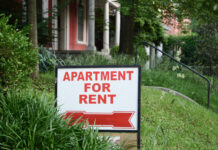It’s an attractive prospect—making an extra income from a second property. But before you put your holiday house up for rent there are few things to consider first.
For starters—are you ready to take on the responsibility of being a landlord?
Do you have the time and energy?
And don’t forget you’ll need to brush up on the latest rental laws.
You also need to work out if renting out a property will offer you the financial benefits you want, especially once you’ve calculated taxes, mortgage repayments and the cost of maintenance.
But, if you get it right, renting out a property can provide you with a range of financial benefits.
So, before you invest in buying a second property to rent, here are a few do’s and don’ts to help you make the right decision.
The Do’s
#1. Do your research
There’s been a lot of changes in the buy-to-let market in the past few years. Although there’s still money to be made from good old bricks and mortar, an unstable housing market has made buy-to-let riskier. So, make sure you’re properly prepared. For example, finding properties to rent in Battersea would be a good choice because of its thriving industry.
Things to research before you commit to buying a property to rent out include:
- Investigate the area you’re planning to buy in—are there good transport links and attractive amenities?
- Familiarise yourself with local property price.
- Take time to identify a tenant profile—for instance, if you buy a suburban three-bedroom house it’s more likely to suit a family rather than young professionals who may prefer a city centre apartment.
- Check out whether there is a demand for rental properties in the area you are buying.
- Calculate how much you need to invest in order to get a return.
- Speak to other landlords.
#2. Do the math
The buy-let-market has slowed down in the past few years, partly due to the recent tax clampdown and the introduction of a 3 percent surcharge for stamp duty.
Nonetheless falling property prices also mean it’s still a good time to pick up a deal.
Decide what you want to get from your investment—for instance, is its purpose to provide you with a regular or secondary income or will be used as a nest-egg for the future?
Also, take your time and shop around for the best buy-to-let mortgage—after all your monthly repayments will be your biggest expenditure.
Lastly, don’t forget to include in your calculations running and maintenance costs, refurbishments, agent and solicitor fees, and tax.
#3. Do try to negotiate a lower price
This where your research can really pay-off.
For instance, if you’re planning to buy in an area where the housing market has stalled and properties are taking longer to sell, you can use this knowledge to your advantage and haggle over the price.
Also, find out how long a property has been on the market, how long the seller has owned it. And, if the sellers need a fast sale, they’ll be even more willing to take a lower offer.
The Don’ts
#4. Don’t buy anywhere without understanding the pitfalls
How comfortable are you with risk? It’s vital you know up front what you’re getting into—this means identifying what could go wrong and what issues you may face.
Some questions to ask include:
- If the property loses its value, how will this impact on you?
- If the interest rate rises, can you still hold onto your investment?
- What will you do if you can’t re-mortgage?
- Can you afford the property if you have a gap without tenants?
- How will you pay for maintenance costs? What if something breaks unexpectedly like the boiler? Do you have an emergency fund to cover the cost?
#5. Don’t assume it’s easy
You need to decide what kind of landlord you want to be—will you be hands-on, or would you prefer to pay an agency to manage everything on your behalf, even if it costs you?
If you do decide to manage it yourself, you’ll save yourself heaps of money but you need to be prepared to put the work in—you’ll be responsible for advertising the property, organising viewings (this means evening and weekend work) and managing any repairs.
Need help selling your buy-to-let?
If you’ve owned your buy-to-let for a long time and want to cash in on your capital gains tax but don’t want to hang around on the market for ages, there are few selling options.
Companies like House Buy Fast will purchase your property quickly and regardless of condition, location, and with tenants in situ.
For more information go here: www.housebuyfast.co.uk
Find a Home-Based Business to Start-Up >>> Hundreds of Business Listings.

















































